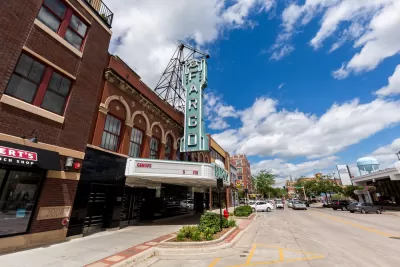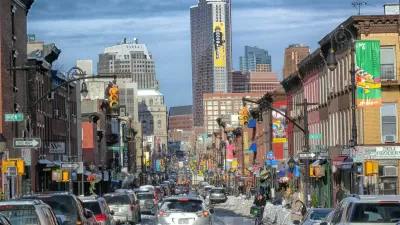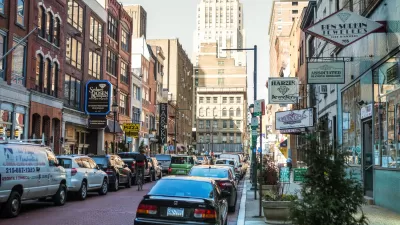A law making its way through the North Dakota Legislative Assembly would challenge a prevailing assumption in the state that free parking is a human right.

"Finding a place to park in North Dakota usually isn’t a big problem. With fewer than 10 residents per square mile, the state is famous for its emptiness," writes James Hagerty. But wait, there's a twist: "Yet lawmakers here are thinking about bringing back parking meters—which have been banned from the streets for 68 years and are still widely regarded with hostility."
In evidence of the state's resistance to parking meters, Hagerty quotes Mike Jacobs, a "retired newspaper editor who lives in North Dakota. "Free parking 'is pretty much regarded as a basic human right,'" explains Jacobs.
And yet…the North Dakota State Senate recently approved a bill that would allow parking meters to return to the streets of North Dakota, and the state's House of Representatives is expected to take up the matter this week. The bill also has local support, according to Hagerty: "The mayors of Fargo and several of the state’s other towns support ending the ban. They believe it would help free up spaces now hogged by downtown workers so that parking would be easier for people going to shops and restaurants." Local leaders also cite local control as a motivating factor behind their support for the bill.
The article includes a history of the state's parking meter ban, and also finds a recent example of a local jurisdiction that approved a similar ban—the city of Biddeford, in Maine.
[The Wall Street Journal article might be behind a paywall for some readers.]

Planetizen Federal Action Tracker
A weekly monitor of how Trump’s orders and actions are impacting planners and planning in America.

Chicago’s Ghost Rails
Just beneath the surface of the modern city lie the remnants of its expansive early 20th-century streetcar system.

San Antonio and Austin are Fusing Into one Massive Megaregion
The region spanning the two central Texas cities is growing fast, posing challenges for local infrastructure and water supplies.

Since Zion's Shuttles Went Electric “The Smog is Gone”
Visitors to Zion National Park can enjoy the canyon via the nation’s first fully electric park shuttle system.

Trump Distributing DOT Safety Funds at 1/10 Rate of Biden
Funds for Safe Streets and other transportation safety and equity programs are being held up by administrative reviews and conflicts with the Trump administration’s priorities.

German Cities Subsidize Taxis for Women Amid Wave of Violence
Free or low-cost taxi rides can help women navigate cities more safely, but critics say the programs don't address the root causes of violence against women.
Urban Design for Planners 1: Software Tools
This six-course series explores essential urban design concepts using open source software and equips planners with the tools they need to participate fully in the urban design process.
Planning for Universal Design
Learn the tools for implementing Universal Design in planning regulations.
planning NEXT
Appalachian Highlands Housing Partners
Mpact (founded as Rail~Volution)
City of Camden Redevelopment Agency
City of Astoria
City of Portland
City of Laramie





























